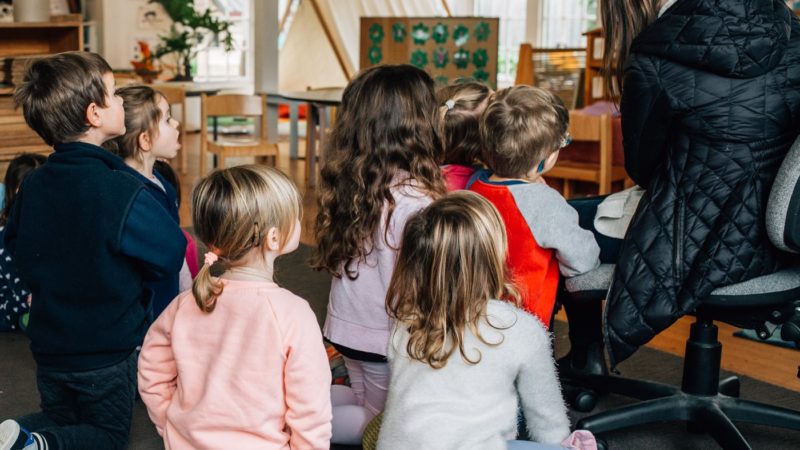Speech and Language Development Tips
This year Geelong West Kindergarten has utilised part of our School Readiness Funding on capacity building for our staff in the area of Speech and Language Development.
Staff are working directly with a speech therapist to increase knowledge and understanding of articulation, language development, social skill development and pre-literacy skills.
Our speech therapist has also provided an information session for parents and compiled some easy to read tips sheets for basic strategies to use with children to develop language skills. See below for one of these:
Children learn to use and understand language (words and sentences) from the people around them, especially the adults they spend most time with. Supporting our children to have strong language skills helps them to be clear communicators who can express themselves, as well as understand and learn ideas and meaning.
Strong language skills include:
- knowing and using a range of words
- putting words in the correct order when talking
- joining ideas together with words e.g. and, so, because
- listening to and understanding stories
- retelling stories
- following instructions
- asking and answering questions
- using language to play and engage with others.
Learning language can happen anywhere and is best done when it’s connected to the things you are doing or have done, and when it’s fun. This means talking with your child throughout the day is really important. You can make every-day routines and activities important times for talking and learning language, this may include:
- while cooking and preparing dinner
- writing a shopping list
- driving in the car
- cleaning up the house or the garden
Almost any activity that you do together can be a time for talking.

Games and play are terrific ways for children to learn language:
- play games together like puzzles, turn taking games (e.g., snakes and ladders and other simple board games), I spy, 20 questions (guess what/who I am).
- pretend play is a great opportunity to talk with children and to teach them new and different words and ideas, pretend play might look like: dressing up as characters, building a fort/spaceship/boat and making up adventure stories, having a tea party with teddies and dolls, being a shopkeeper.
During play, it’s important to remember to follow your child’s lead, let them direct what they play with while you join in and add to it. In addition to talking during the day and when playing together, reading books with your child is another fantastic activity that helps children learn language.

How we talk…….
There are ways that we can talk to our children that help them learn new language skills:
- make time to focus on what your child is doing and what they’re saying (without getting distracted), this lets your child know that what they have to say is important.
- during play and every-day activities, talk about the materials/objects that are being used and what they’re being used for.
- model new words and explain what they mean, e.g. if you’re playing with trains, trucks and cars you can explain that they are all types of ‘vehicles’, you can then model using the word in a sentence, “I’m the driver of the vehicle that has a trailer, and you’re the driver of the vehicle that has carriages” OR you might say “I wonder which vehicle is the fastest? Let’s race these vehicles”.
- expand on what your child has told you by repeating back to them what they’ve said but with more information e.g. child “look, a cat up the tree.” adult – “oh yes, I see the white, fluffy cat in the tree. Maybe its hiding or maybe it’s chasing a bird.”
- explain how ideas are connected by being similar or different to something else e.g. adult – “goodness, the bubbles in the sink are overflowing, it looks a bit like a volcano erupting.”
- in addition to talking about the ‘here and now’, talk to your child about things that may happen in the future by asking questions like ‘what would happen if?’
- when talking with your child, be sure to leave space (pauses) after you talk so they can take a turn and make it a conversation.
- praise your child when you hear or see them using good language skills, whether it be using descriptive words (e.g. enormous, colourful, stretchy), a sentence to explain (e.g. “I’m building windows in my house so light can come in and we can see”) or if they listen and understand stories and instructions. Tell your child what you liked, e.g., “that was a great sentence, you explained why you needed to make windows” or “I saw you listening, and you were able to follow the instructions, well done.”
More information can be found at https://raisingchildren.net.au/preschoolers/connectingcommunicating. Your kindergarten and the School Readiness Team can also support you.
Happy Talking!!
Developed by Chelsea Rowe, SRF Speech Pathologist, July 2021
Please note, this information is general advice only. Specific strategies should be discussed with the SRF team.
